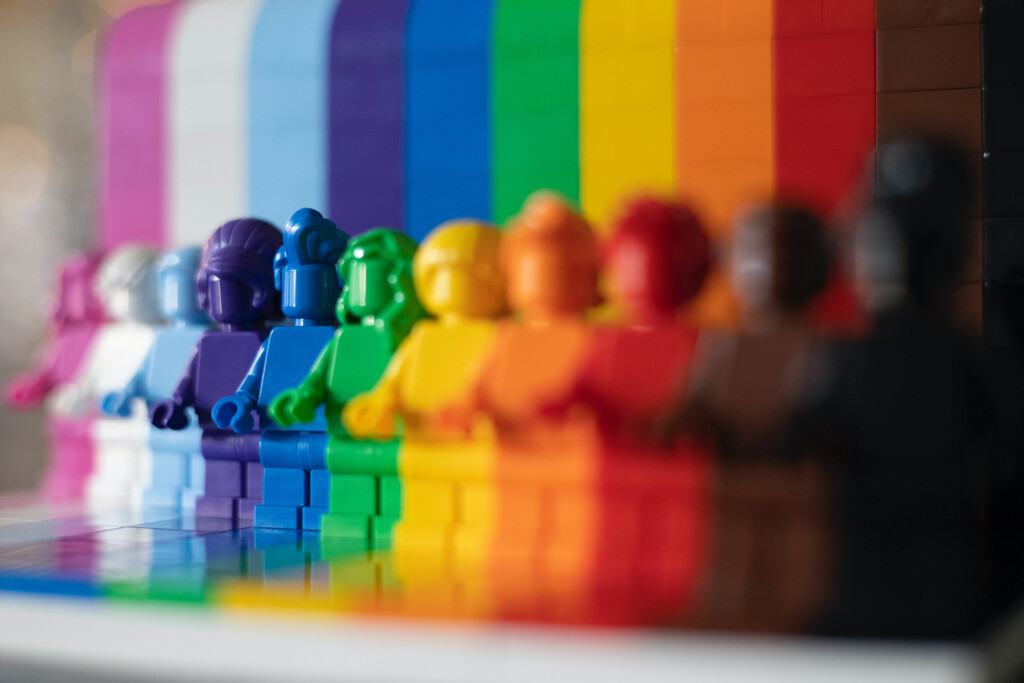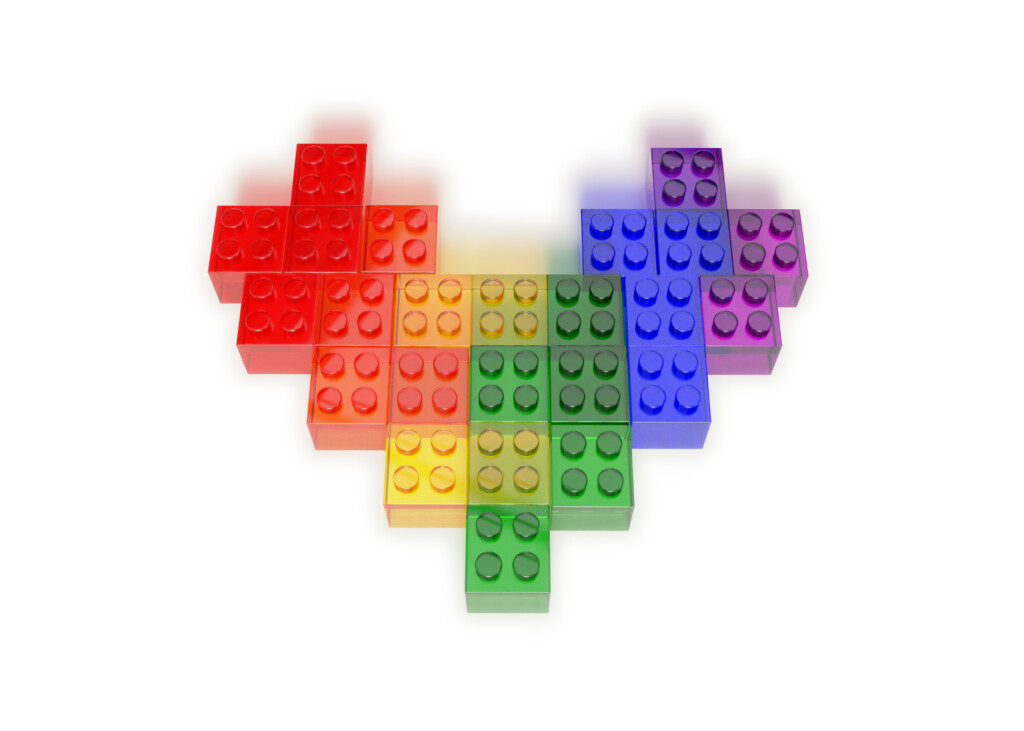Taking Pride in our Humanity
Every June brings with it a slew of corporations swapping their brand colors with ROYGBIV to celebrate Pride month as a show of support for the LGBTQ+ community. This June has been no different; perhaps only that the number of corporations displaying their support continues to increase. As a CEO, I hold two perhaps opposing ideas at once on this show of support. I think it’s inherently a good thing for companies, especially those made up of people, to publicly support groups of people that are currently and have historically been marginalized. AND I believe and ascribe to the criticism that displaying rainbows is hardly enough.
As part of our quarterly book club for our managers, we’ve been reading about systems thinking – a framework for considering the interconnectedness of beings and ideas vs. a more siloed approach or within a single point in time. The primary context being in business, of course, and how to consider ways in which that interconnectedness contributes to certain outcomes. The book discusses ways to take a system-wide, long-term perspective on problem-solving to avoid the short-term perception of a solution, only to later wield a larger or different problem. This can be a challenging way of thinking and behaving in our fast-paced culture that thrives on immediate gratification.
This June, as I’ve been thinking about the LGBTQ+ community and considering the application of systems thinking to humanity more broadly, I’ve decided the humanitarian case and business case are inextricably intertwined.
Humanity Drives Business Objectives

Humans cannot survive alone, as a single individual. The truth is, underneath our thin veneer of celebrated independence, we are each highly dependent upon other individuals in order to survive and thrive. One individual cannot single-handedly produce, procure, or create everything they would need to survive without some other human intervention. That’s assuming the starvation of human relationships doesn’t kill you first. We are neurologically wired to experience connection with other individuals. According to Matthew Lieberman, social pain—or that of not belonging or having meaningful relationships—appears in brain scans the exact same way physical pain registers. Social interactions, belonging to a group, and meaningful relationships are therefore the prophylactics for social pain.
COLAB is a professional services business, which means we employ humans—highly skilled humans. As a company that employs people, we create an opportunity for individuals to associate with groups—those groups being COLAB as a whole or a smaller team. If we apply systems thinking to our construct, and consider that our collection of people is connected to the people outside of the walls (real or virtual) of our office, then by default we cannot support the human rights of those on our payroll and ignore the human rights of all others.
Supporting our people, both professionally but also respecting their fundamental human rights, is foundational to retaining our employees and growing the business. COLAB, as with most businesses, simply does not exist without its people. The LGBTQ+ community plays a significant role in our communities and in our businesses. While a visual show of support isn’t all we can and should do, it does proclaim that human rights, respect, and inclusivity plays an important role in our businesses.
DEIB as the Foundation
For COLAB, our DEIB framework provides not only a positive culture and work experience but is just good business sense. Our work requires constant creativity and innovation, it requires new and different perspectives to do our best work. We cannot achieve those desired outcomes without diversity of thought (for which diversity of individuals—their being, beliefs, and backgrounds—is a prerequisite). Diversity alone, however, isn’t enough. An equitable playing field and inclusive structure are also required conditions for fostering a sense of belonging.

DEIB Defined at COLAB
- Diversity – diverse life experiences create diverse perspectives; it is through those varying lenses that innovation occurs
- Equity – we are all afforded access, care, and rights
- Inclusivity – a system that accepts and welcomes all
- Belonging – a subjective feeling that we are a valued part of a group (which should stem from the above three components)
A Call for Inclusivity

If fostering a sense of belonging within our workforce is the goal (so that we can retain our employees and grow our business), then we as leaders must step up to the challenge of creating diverse, equitable, and inclusive environments in which strong social connections and authentic belonging can prosper.
Companies must build structures and organize in a way that produces certain behaviors, and those behaviors lead to the (hopefully successful) creation of goods or services. According to Peter Senge, “Structural explanations address the underlying causes of behavior at a level at which patterns of behavior can be changed. Structure produces behavior, and changing underlying structures can produce different patterns of behavior.” When we have structures intended to exclude, villainize, or harm, we produce patterns of behavior that mimic that same exclusion, villainization, and harm. The task at hand for leaders and corporations is to create structures that accept and welcome all individuals, including our LGBTQ+ community, so that the behaviors we foster are not only good for humanity, but good for business.
To our LGBTQ+ friends, you are a valued part of our community, our humanity, and our business.
